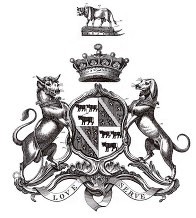Peter Archdale has kindly sent me some information relating to his grandfather, W P P Archdale, second son of the Right Honourable Sir Edward Archdale, 1st Baronet:-You may be interested to know that my grandfather, William Porter Palgrave Archdale (Billy), bought Mountfield Lodge with 100 acres of land and 40,000 acres of shooting in 1924/5 from Sir Lionel McMahon Bt and sold it in 1947 to General Sir Dennis Moore. Billy worked for most of his life in the Sudan with the Sudan Cotton Plantations Syndicate.
From 'The Sudan Star', May 9, 1946
"W. P. Archdale, Manager of the Sudan Plantations Syndicate has left the Sudan on retirement, as already announced, a friend and fellow worker writes:
"Last week Billy Archdale slipped away quietly out of the country after thirty years' service to it, and with him went the end of an Epoch. He was one of the last Englishmen of the paternal age, one of the band of men whose strong and vivid personalities created the first order and prosperity this country had ever known.
Coming up from Egypt as long as 1910 he became one of the pioneers of the Gezira Scheme, and, par excellence, the tenants' man. A countryman himself, (his father Sir Edward Archdale, Bart, was for many years Minister of Agriculture in Northern Ireland) he had a natural sympathy with the countrymen of the Gezira, tempered with a very shrewd knowledge of their weaknesses.
An unusual mastery of the spoken Arabic Language and an untiring energy made him quickly their confidant and mentor. His name Archdale became a household word, transcribed as "Ershed", their teacher. The Sudan will always owe him a debt for building into the foundations of its most important economic venture a tradition of hard work, human intimacy, and intolerance of shoddy standards. "
Sportsman And Naturalist
"He was a great sportsman and naturalist, delighting in birds, fishes and animals of all kinds. Out of thousands of wild bulls which passed through his hands for training, he would easily remember an individual animal seen two years later pulling a plough in a distant tenancy.
At home in Northern Ireland he had astonishing success in training shooting dogs. Here in the Sudan he was famous as a trainer of polo ponies. Under his hands nervous ponies became quiet yet ready to jump forward like an arrow. All animals had an instinctive respect and trust for him. And not animals only.
Probably the most lasting picture of him is as a polo captain. A superb player in his prime, his mere presence on the side was often the cause of victory, for he made men play above their usual form."
Right Without Logic
"As a man, a true Irishman, he was prepared to argue what at times seemed black was white, and embarrassed accurate minds by his lack of care for logic, but he had an uncanny knack of being right in essential human values.
Of all his qualities, his loyalty was perhaps the most outstanding, but it was a loyalty to persons, not to things, the sort of loyalty that sticks to a friend be he right or wrong. This very trait isolated him in some ways from younger generations, for he had little use for the theories which much more than persons, claim the loyalties of modern minds.
He had a contempt for shams and falsehood and a distrust of ease and comfort, keeping himself hard and fit for any duty that might come his way. To those in trouble, unable to make up their minds whether to take the high road or the low, he would give advice "Do the difficult thing," he would say, "it is almost certain to be right"."
CBE: A Token Tribute
"A profound sense of duty dominated his actions. This respect for discipline kept him on his job in this country without honour in the first world war and cast a shadow over his whole life, for he was born to be a leader of fighting men and every instinct in his nature called him into war. It kept him also, often a lonely and weary man, on his job throughout this war long after his retiring age."
"He had a rare innate modesty which made some think him unsociable, it was typical of his character to think himself unfit to be given the C.B.E. and only to accept it as a token tribute to his staff. Although he belonged to an authoritative age, and so had little sympathy with certain modern trends; his virtues, courage, energy, loyalty."






















